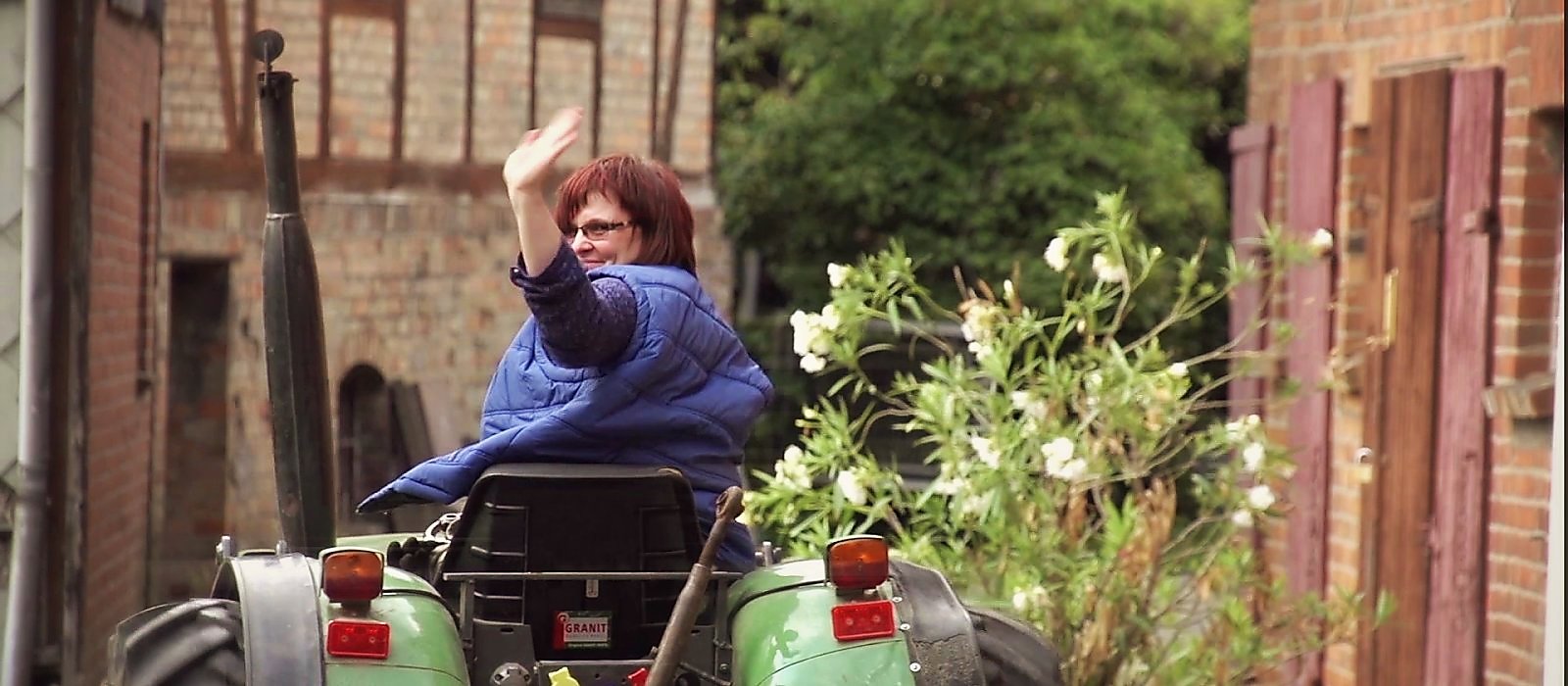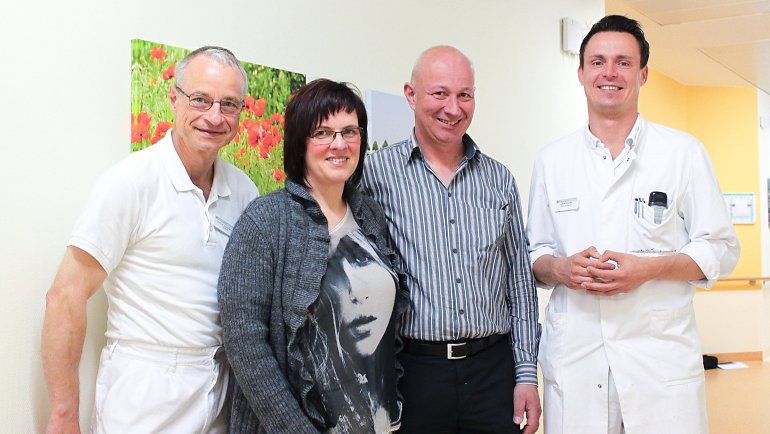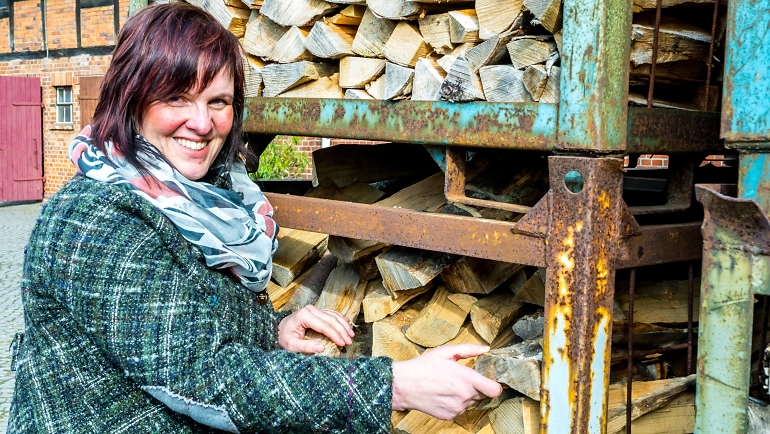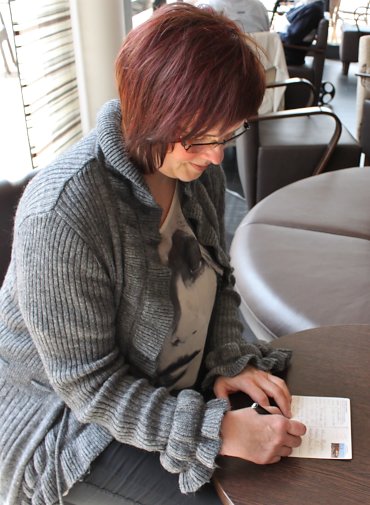
Without the successful surgery by the medical team at HELIOS Hospital Hildesheim, life might have taken a hard turn for Frauke Quidde. She was cutting firewood on her small farm last year when her hand slipped inside a log-splitting machine and was almost completely severed at the wrist. “It was a total, absolute shock,” she recalled. “My right hand was literally hanging by threads.”
(Published: January 2016)
Every minute counted now. While waiting for emergency personnel to arrive at the farm near Braunschweig – a northern German city also known as Brunswick – Frauke Quidde had to use her left hand to hold the severed hand in place as best she could. Then she was moved into a rescue helicopter, which flew her approximately 45 kilometers (28 miles) to HELIOS Hospital Hildesheim, where a surgical team headed by Dr. Bernd Rieck was standing ready in the operating room.
“It was crucial to restore the blood flow as quickly as possible,” explained Dr. Rieck, Chief Physician in the hospital’s Plastic, Aesthetic and Hand Surgery Department. “Every quarter hour increases the risk of permanent damage to the hand. So we not only needed to work very precisely, but also very quickly.”
“I was very lucky, but for me it was really a medical masterpiece.”
Dr. Rieck, Resident Physician Jakob Krainski and the rest of the team decided to rejoin the blood vessels, tendons and nerves before stabilizing the bone – a reversal of the usual order. By the time blood started recirculating through the hand, “only” three hours had elapsed. “That is a phenomenally good time,” Dr. Rieck explained. “You had an old veteran like me and a young master working together at the operating table. This operation had already been performed at other hospitals, but they didn’t all do it as well. It was real teamwork.”
Just two days after the accident, Frauke Quidde could start moving her fingers, and she continued to make rapid progress during rehabilitation. Today, she is back working on the farm, doing all the things she did before: harvesting fruit, driving the tractor, and feeding the animals.

“Ms. Quidde is an extraordinarily brave and determined woman,” said Jakob Krainski. “The excellent result is also attributable to her positive approach: She really supported all the therapies and gave tremendous cooperation. I’m really proud of my patient, and she should feel proud, too.”
What Frauke Quidde mostly feels, though, are a sense of gratitude and a deep appreciation that she has been able to return to her old, active life. “I’m really thankful to the doctors, the nurses and the rest of the staff in Hildesheim that I can move my hand again and drive a car, and above all that I can lead an independent life,” she said. “That’s why it was clear to me that the first card I could write from the rehabilitation clinic would be to the medical team in Hildesheim. It was just a small ‘thank you’ to the doctors and the medical staff in the hospital. I was very lucky, but for me it was really a medical masterpiece. My husband and I are unbelievably grateful.”







